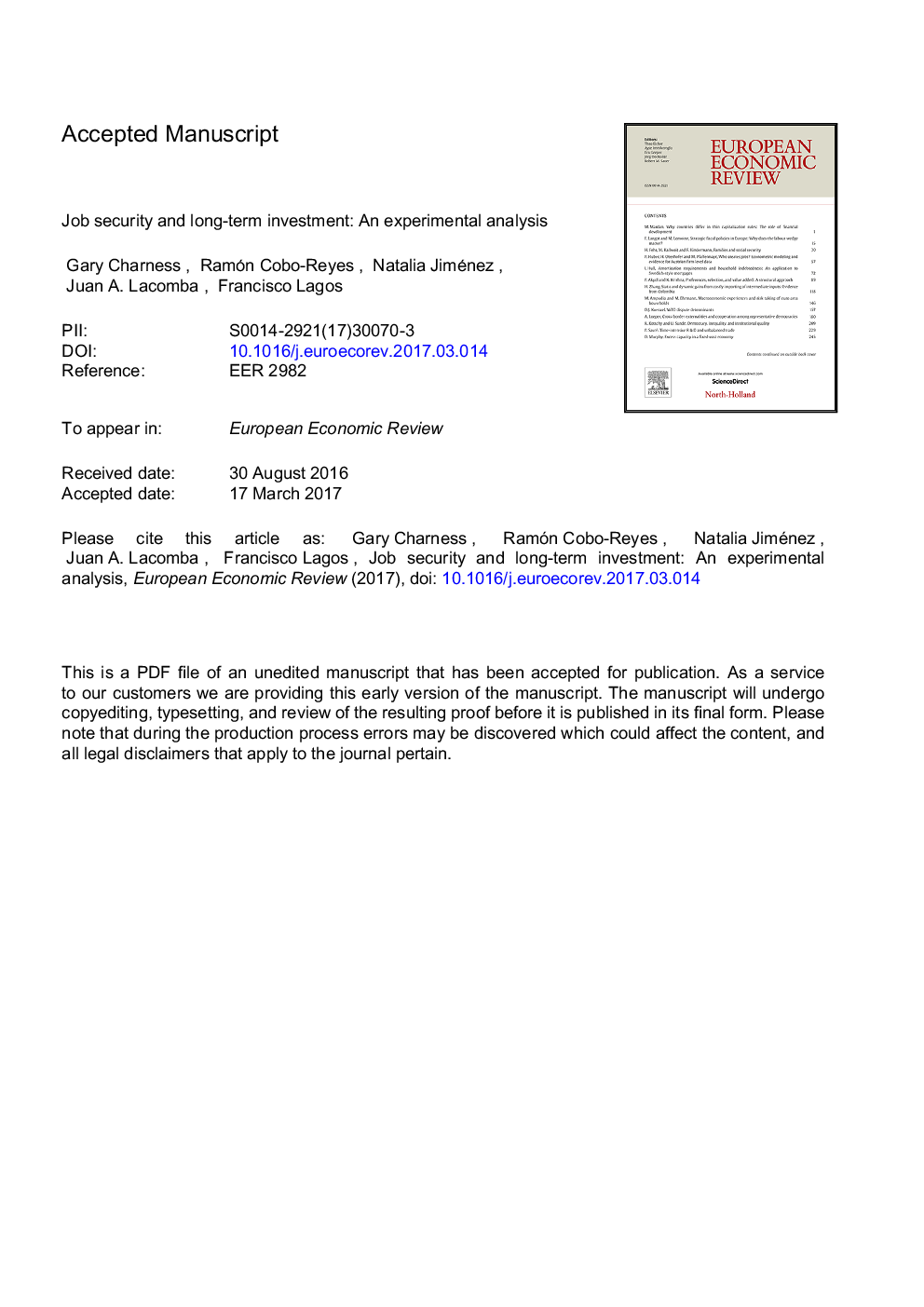ترجمه فارسی عنوان مقاله
امنیت شغلی و سرمایه گذاری دراز مدت: یک تجزیه و تحلیل تجربی
عنوان انگلیسی
Job security and long-term investment: An experimental analysis
| کد مقاله | سال انتشار | تعداد صفحات مقاله انگلیسی |
|---|---|---|
| 140588 | 2017 | 44 صفحه PDF |
منبع

Publisher : Elsevier - Science Direct (الزویر - ساینس دایرکت)
Journal : European Economic Review, Volume 95, June 2017, Pages 195-214
ترجمه چکیده
ما یک بازار کار آزمایشی بازار را بررسی می کنیم که در آن جنبه جدیدی را معرفی می کنیم که کارگران فرصت سرمایه گذاری پول در یک پروژه بلند مدت برای افزایش درآمد خود دارند. ما رابطه قوی بین آنچه در داخل بازار کار (عملکرد کارگر) اتفاق می افتد و آنچه خارج از بازار کار (سرمایه گذاری دراز مدت) اتفاق می افتد پیدا می کنیم. بر خلاف پیش بینی های نظری با ترجیحات خودخواهانه، متوجه می شویم که صرف حضور پروژه های بلند مدت به عنوان یک ابزار اجرای تلاش عمل می کند؛ به نظر می رسد این اثر به دلیل افزایش روابط بلند مدت در زمینه اشتغال است. در جهت دیگر، به نظر می رسد روابط بلندمدت کار به محیط امن تر برای انجام پروژه های موفق دراز مدت کمک می کند. این مقاله همچنین سه نوع قرارداد کار آزمایشی را در نظر می گیرد. ما می بینیم که موانع اخراج بر اساس عملکرد، که در آن شرکت ها نیاز به حفظ کارگران اگر آنها راضی سطح تلاش مورد نیاز شرکت ها، منجر به روابط بیشتر طولانی مدت کار و بهره وری کلی بالاتر. همانطور که نظریه پیش بینی می کند، حضور موانع بازپرداخت تجدید پذیر باعث می شود که کارگران سطح تلاش مورد نظر را فراهم کنند. به نظر می رسد که شرکت ها به درستی پیش بینی می کنند که منجر به افزایش بهره وری اجتماعی می شود.

